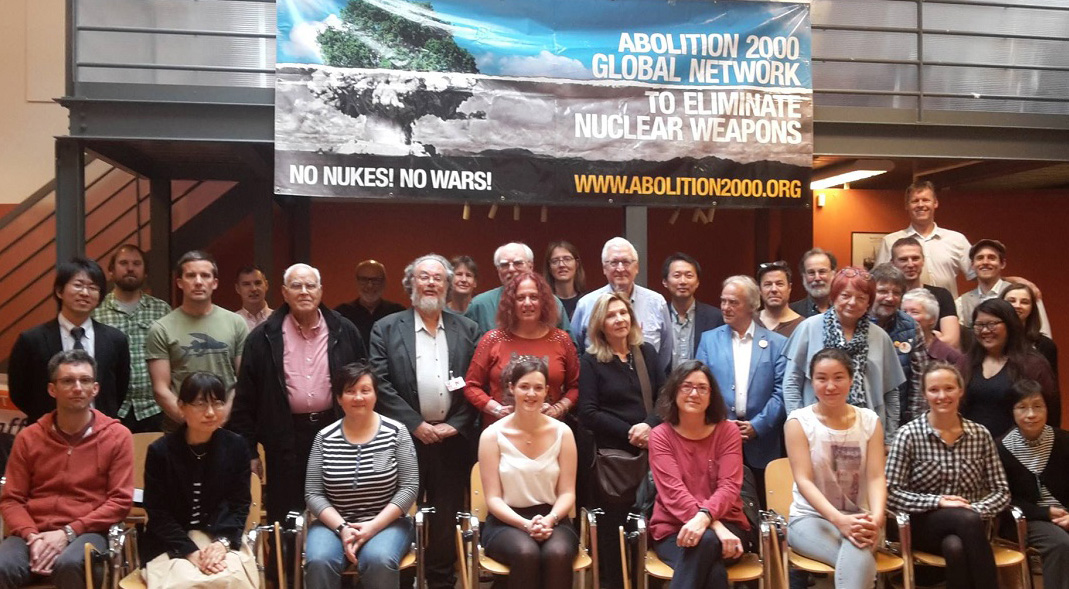Civil Society Presentation to NPT PrepCom, Geneva
International Association of Lawyers Against Nuclear Arms
25 April 2018
Delivered by Amela Skiljan, Board member, German IALANA
Dear colleagues:
On 22 August 2017, a true hero of the nuclear age, Tony de Brum, passed away. He did many important things in his life. One of them was that as Foreign Minister, he spearheaded the Marshall Islands’ nuclear disarmament cases in the International Court of Justice. When the cases were filed, in April 2014, he said: “Our people have suffered the catastrophic and irreparable damage of nuclear weapons and we vow to fight so that no one else on Earth will ever again experience these atrocities.” Regrettably, by the narrowest of margins the Court refused to adjudicate the cases on their merits. But de Brum’s call to action should serve as an inspiration on other fronts, not least this NPT review process.
We are now faced with a contradictory environment. A majority of the world’s states last year adopted the Treaty on the Prohibition of Nuclear Weapons. Going entirely in the other direction, the two largest nuclear powers, the United States and Russia, appear poised to resume nuclear arms racing reminiscent of the darkest days of the Cold War.
The US Nuclear Posture Review released on February 2 proposes two new capabilities, both aimed at Russia, a low-yield warhead deployed on submarine-launched missiles, and a sea-based, nuclear-armed cruise missile. It also endorses replacement of an air-launched cruise missile with a stealthier, more capable version. And the review emphasizes the role of nuclear weapons in responding to “non-nuclear strategic attacks,” notably cyberattacks.
In a March 1 address, President Vladimir Putin described an array of new nuclear weapons delivery systems, including a nuclear-powered cruise missile, an underwater drone carrying “massive nuclear ordinance”, and a multiple warhead ballistic missile with virtually unlimited range capable of flying over the South as well as the North Pole.
All of this stands in blatant disregard of the NPT. The NPT preamble declares the “intention to achieve at the earliest possible date the cessation of the nuclear arms race”. And of course, Article VI requires the pursuit of negotiations in good faith on effective measures relating to cessation of the nuclear arms race at an early date.
The concept animating Article VI was that quantitative build-up and qualitative improvement of nuclear arsenals was to be ended prior to negotiations on their elimination. By the mid-1990s, the agenda had been partly achieved. Nuclear arsenals were reducing in size, and nuclear explosive testing was halted. Indeed, in a 1995 declaration, France, Russia, the United Kingdom and the United States welcomed “the fact that the nuclear arms race has ceased.”[*]
But the gains of the 1990s are now being reversed. Hence the need to go back to the basics. Qualitative – and possibly quantitative – nuclear arms racing should now be out of the question. The “early date” has long since passed! Yet there are no negotiations on the subject taking place or in sight, clearly a breach of Article VI, which requires such negotiations to be pursued and concluded. And the weapons development described by Putin and the Nuclear Posture Review is a breach of the legal requirement of good faith in relation to the objectives of Article VI.
As we approach its fiftieth anniversary, the NPT risks losing its appeal as a tool for disarmament, and its viability as a bulwark against proliferation is even in question. The implementation of well-known steps is vital. They include a pledge not to initiate nuclear warfare; hold-out states’ ratification of the Comprehensive Nuclear-Test-Ban Treaty to bring it into legal force; and ending nuclear sharing, the NPT-violative arrangement for five states to host and potentially use US nuclear bombs.
Above all, nuclear-armed states must abandon the myth that ‘nuclear deterrence’ keeps us safe. Now more than ever, it is imperative to comply with the unanimous conclusion of the International Court of Justice: “There exists an obligation to pursue in good faith and bring to a conclusion negotiations leading to nuclear disarmament in all its aspects under strict and effective international control.”
[*] NPT/Conf.1995/20, 19 April 1995, Annex.
Download the Statement


